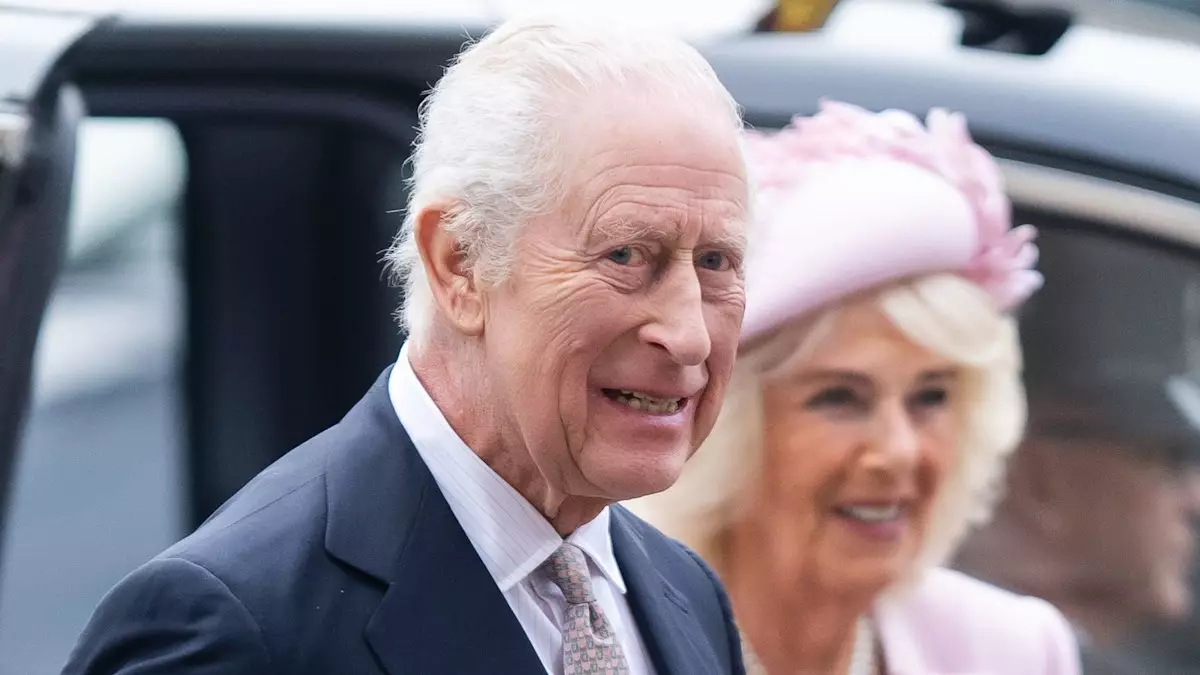Recently, the royal family was under the spotlight as Buckingham Palace issued a concerning statement regarding King Charles. At 76, the King is grappling with the repercussions of his cancer treatment, which has necessitated a hospital visit. This news has raised eyebrows and concerns, particularly about his overwhelming commitment to royal duties amidst health issues. While the palace rushed to reassure the public of his well-being and upcoming plans, including a significant trip to Italy, the reality of balancing royal obligations with personal health cannot be overlooked.
The poignant depiction of King Charles as a tireless worker reveals a deeper issue within not just the monarchy, but society at large. Any public figure, especially one of royal stature, faces immense pressure to maintain an appearance of invincibility. However, the very human aspect of vulnerability must not be discarded at the altar of duty. Queen Camilla’s worries about her husband’s reticence to scale back his commitments force us to confront a much larger conversation about the expectations placed on leaders and how they manage their health in the public eye.
Unyielding Work Ethic and Its Implications
King Charles’ unflinching dedication to his responsibilities, as highlighted by reports noting his immediate return to state papers after his discharge from the hospital, points to a complex interplay between work ethic and self-identity. His son, Prince Harry, illustrated how this relentless pursuit for productivity can blur the lines of personal well-being, recounting moments when his father would doze off at his desk — a harrowing image that captures both admiration and concern.
While this drive for productivity may evoke admiration, it also echoes a larger societal narrative that glorifies overwork. Experts like Dr. Mohammed Enayat have identified a troubling trend where societal expectations fuse self-worth with professional output. In this light, workaholism emerges not merely from ambition but as a coping mechanism to quell underlying insecurities. The notion that one’s value is tied to relentless productivity is not just a personal narrative for King Charles, but a systemic issue impacting many individuals in high-pressure scenarios.
The Psychological Toll of Excessive Productivity
The insights shared by recovery coach Elizabeth Walker provide a critical lens on the psychological ramifications experienced by those who work excessively. The inability to detach from work can lead to a construct where validation is sought solely through productivity. This creates a vicious cycle; the more one works, the less time they spend nurturing emotional and physical health, exacerbating ailments instead of alleviating them.
Moreover, the long-term implications of neglecting one’s health are profound. As Walker eloquently states, equating oneself to a machine leads to burnout that can’t be easily repaired. Unlike machinery, humans carry the scars of neglect, manifesting in various forms of mental and emotional turmoil. The transformation of stress responses when faced with perpetual obligations can create a profound disconnect from what it means to be well — a reality that merits urgent attention.
Reflections on Royal Resilience and Health Prioritization
In contemplating King Charles’ situation, we must look beyond the spectacles of monarchy to understand the pressing need for balance between duty and self-care. The encouragement from Queen Camilla for her husband to slow down is not just a plea for familial concern; it reflects a crucial need for leaders to acknowledge their limits.
As King Charles gears up for travel and various engagements, the question arises: can he afford to disregard his health under the facade of royalty? The answer is unequivocally no. This serves not only as a matter of personal well-being but also as a pivotal example for those who idolize such figures. This is a moment for leaders everywhere to reconsider their obligations to personal health as much as their responsibilities to the public. The narrative set by royals impacts countless followers; by embracing vulnerability alongside duty, not only can they promote a healthier perception of leadership, but they can also inspire a method of governance that values the leader’s well-being equally as the values they aspire to serve.

